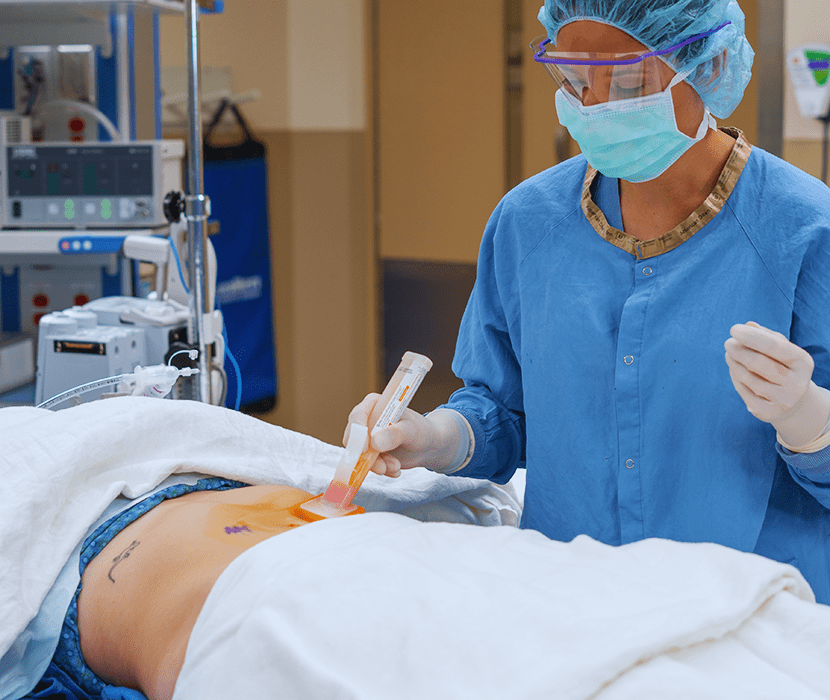Abdominal surgery, often referred to as abdominal or laparoscopic surgery, involves procedures performed within the abdominal cavity. This intricate field of medical intervention is crucial for addressing various health issues. Understanding the nuances of abdominal surgery is vital, especially for individuals facing the prospect of undergoing such procedures.
Types of Abdominal Surgery

Abdominal surgery encompasses a range of techniques, each serving specific purposes. These techniques generally fall into three categories: laparoscopic, open, and robotic surgery.
Laparoscopic Surgery
Laparoscopic surgery, also known as minimally invasive surgery, involves small incisions through which a camera and specialized tools are inserted. This technique minimizes scarring and accelerates recovery.
Open Surgery
Open surgery involves a larger incision, providing surgeons with direct access to the abdominal organs. This traditional approach is employed when the complexity of the procedure requires a more extensive view.
Robotic Surgery
Robotic surgery utilizes advanced robotic systems controlled by surgeons. It combines the benefits of both laparoscopic and open surgery, offering precision and less invasiveness.
Common Reasons for Abdominal Surgery
Appendicitis
One of the most common reasons for abdominal surgery is appendicitis. An inflamed appendix requires prompt removal to prevent complications.
Hernia Repair
Abdominal hernias often necessitate surgical intervention to repair the weakened tissue and prevent complications like strangulation.
Gallbladder Removal
Issues such as gallstones may lead to the removal of the gallbladder through surgery, alleviating pain and digestive problems.
Tumor Removal
Abdominal surgery is often employed to remove tumors affecting organs such as the liver, kidneys, or intestines.
Preparing for Abdominal Surgery

Consultation with Surgeon
Before the procedure, thorough consultations with the surgeon are essential. Patients can discuss concerns, understand the procedure, and establish realistic expectations.
Preoperative Instructions
Surgeons provide specific preoperative instructions, covering dietary restrictions, medication protocols, and lifestyle adjustments.
Mental Preparation
Preparing mentally for surgery is as important as physical preparation. Understanding the process and visualizing a positive outcome can alleviate anxiety.
The Abdominal Surgery Procedure
Operating Room Setup
The surgical team meticulously prepares the operating room, ensuring all equipment is sterile and ready for the procedure.
Anesthesia Administration
Anesthesia is administered to induce a pain-free and unconscious state throughout the surgery, providing a safe environment for the patient.
Surgical Incision and Exploration
Surgeons make precise incisions to access the abdominal cavity, allowing them to examine and address specific medical issues.
Closing the Incision
Upon completing the procedure, the surgeon closes the incision carefully, minimizing scarring and promoting optimal healing.
Recovery and Postoperative Care
Immediate Postoperative Period
Patients are closely monitored immediately after surgery to manage pain, address immediate concerns, and ensure a smooth transition into recovery.
Hospital Stay
The duration of the hospital stay varies depending on the complexity of the surgery. Postoperative care involves pain management, monitoring vital signs, and gradually reintroducing food.
Home Recovery Tips
Once discharged, following postoperative care instructions, maintaining a balanced diet, and gradually resuming physical activity are crucial for a successful recovery.
Potential Risks and Complications
Infection
Though rare, surgical sites may become infected. Strict adherence to hygiene protocols helps minimize this risk.
Bleeding
Excessive bleeding during or after surgery is a potential complication. Surgeons take precautions to minimize this risk; postoperative monitoring ensures early detection.
Organ Damage
In rare instances, adjacent organs may sustain damage during surgery. Skilled surgeons and advanced technologies minimize this risk.
Benefits of Abdominal Surgery
Improved Quality of Life
For many patients, abdominal surgery leads to a significant improvement in their overall quality of life by resolving chronic health issues.
Resolution of Chronic Conditions
Abdominal surgery often provides a lasting solution to chronic conditions that impact daily life, offering relief from pain and discomfort.
Alternatives to Abdominal Surgery
Non-Surgical Options
Certain conditions may have non-surgical alternatives, and exploring these options with healthcare providers is essential.
Lifestyle Changes
In some cases, lifestyle changes such as dietary adjustments and increased physical activity can mitigate the need for surgery.
Patient Experiences
Real-life Stories
Hearing the experiences of individuals who have undergone abdominal surgery can provide valuable insights and reassurance to those preparing for similar procedures.
Tips for Coping
Patients share coping strategies, emphasizing the importance of a support system, a positive mindset, and adherence to postoperative instructions.
Choosing a Surgeon and Hospital
Factors to Consider
Selecting a skilled surgeon and a reputable hospital is crucial. Factors such as experience, patient reviews, and success rates should be taken into account.
Second Opinions
Seeking a second opinion is a prudent step, offering patients a broader perspective on their condition and potential treatment options.
Conclusion
In conclusion, abdominal surgery is a diverse field offering solutions to various health issues. Understanding the types, reasons, and procedures involved is essential for those facing such interventions. With advancements in surgical techniques, the benefits often outweigh the risks, providing individuals with an opportunity for a healthier and improved quality of life.
Read also: Why Iran Would Attack Pakistan
FAQs About Abdominal Surgery
Q. How long does the recovery process take after abdominal surgery?
Recovery times vary but typically range from a few weeks to several months, depending on the complexity of the procedure.
Q. Are there any non-surgical alternatives to address abdominal issues?
Yes, for certain conditions, non-surgical alternatives such as medications, lifestyle changes, or specialized therapies may be explored.
Q. Is laparoscopic surgery always a better option than open surgery?
Not necessarily. The choice between laparoscopic and open surgery depends on the specific medical condition and the surgeon’s recommendation.
Q. What precautions can be taken to minimize infection risk after surgery?
Following postoperative care instructions, maintaining good hygiene, and attending follow-up appointments are crucial to minimize infection risks.
Q. How can patients mentally prepare for abdominal surgery?
Mental preparation involves understanding the procedure, discussing concerns with the surgeon, and visualizing a positive outcome. Seeking support from loved ones is also beneficial.




